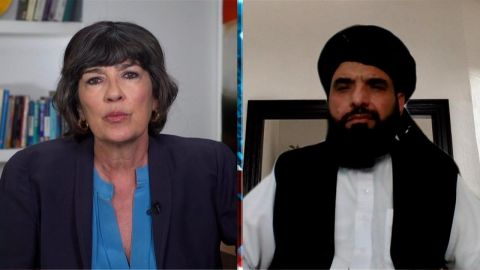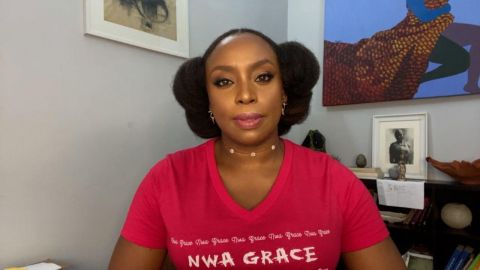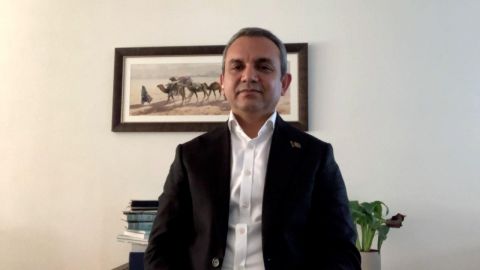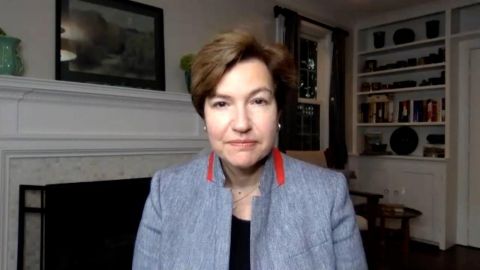Read Transcript EXPAND
CHIMAMANDA NGOZI ADICHIE, AUTHOR,”NOTES ON GRIEF”: I don’t know how I’m processing it, Christiane. I think I’m still in the process. And can I just say how lovely it is to see you. And thank you for your courage and your bravery, because I think that telling us about your personal life has inspired so many women and educated so many women. So thank you. I don’t know. I think I’m learning how grief is not something that one can — I’m learning how language has failed me. And I’m learning how it’s such an ongoing process and it’s such a multifaceted process. And there are days when I think that I’m kind of going to be OK, and then there are days when I just cannot believe what has happened to us, and I really have to fight not to be overwhelmed by despair and by a kind of existential questioning of everything. I feel as though I live in a novel, whose plot I just do not–
(CROSSTALK)
CHRISTIANE AMANPOUR: I wonder whether — because you also talk about gaining a certain amount of comfort from the rituals. And I just wonder whether you could talk a little bit about how you do grief in your family, in your community, compared to how many people here or in America or elsewhere are processing grief, because it’s happening all over the world, of course, with the COVID years. Can you make that distinction?
ADICHIE: I think there are two things. Both my parents were Catholic and they’re Igbo. That’s an ethnic group. So the funeral for both of them, the funerals were both Catholic and Igbo. And so we had the Catholic mass, which I found surprisingly comforting as well. I did the readings at the masses. And I did one reading in English and one in Igbo. And even just that, for me, felt comforting, because mass was such a central part of my parents’ lives. And then there’s the Igbo funeral part of it, which is actually kind of like a celebration. And before the funerals, I felt very upset at the thought of having to celebrate, because I just thought the most devastating thing that has ever happened to me has just happened. I do not want to bloody dance. But then, at the funeral, I actually found it very comforting to be surrounded by people, to dance, to hold up my parents’ photographs. So there’s a ritual in which you hold your photograph of the loved ones passed on, and you kind of lament. So I’m dancing, and I’m sort of singing, and I’m saying, my father is gone, my father was a great man. (INAUDIBLE) And that, I found — I started to understand that there’s a sense in which focalizing pain.
About This Episode EXPAND
The New Yorker’s Susan Glasser broke the story of Former President Trump and General Mark Milley’s clash on Iran and joins the show to discuss what she found.
LEARN MORE



